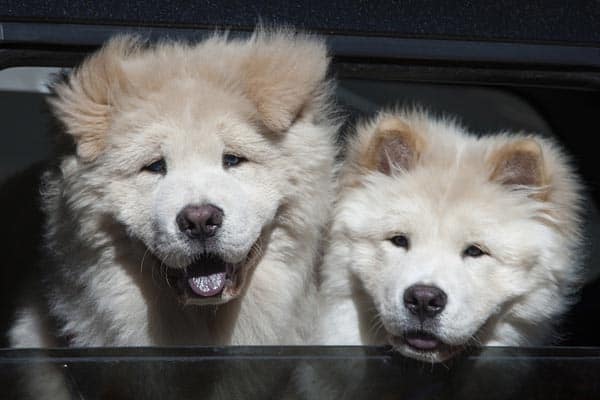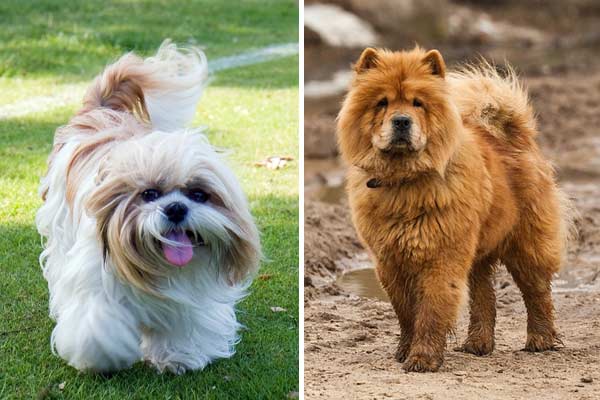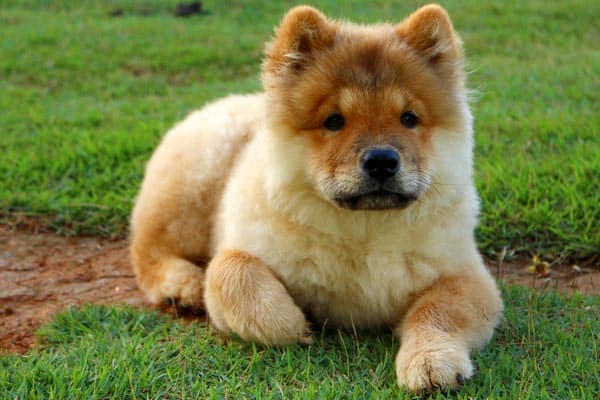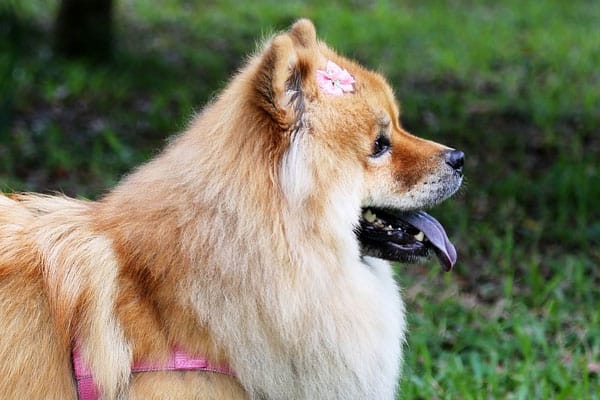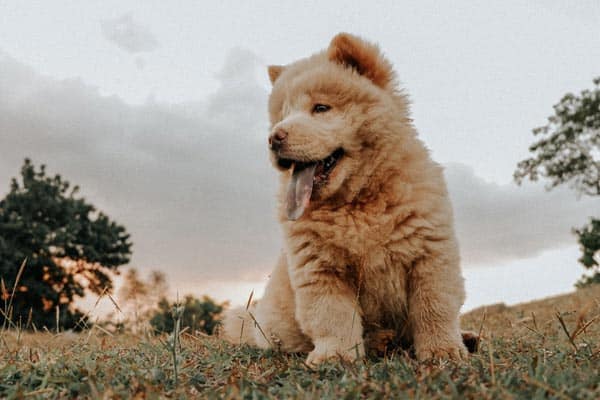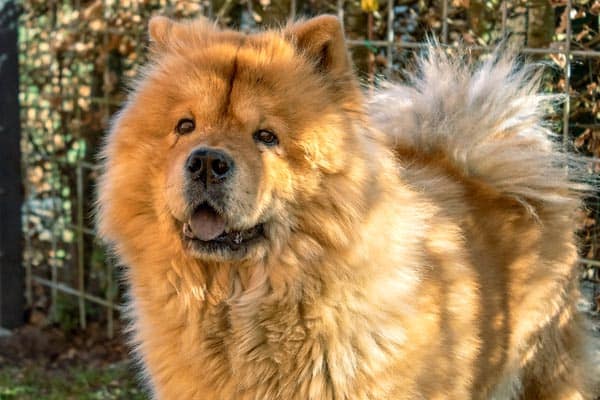How Long Do Chow Chows Live: Learn the Life Expectancy of This Ancient Breed
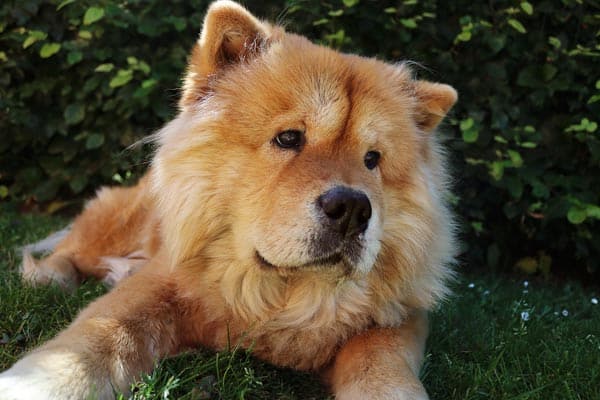
The Chow Chow dog breed is incredibly ancient and truly unlike any other modern purebred dog.
The allure of owning a dog breed that dates back to 206 B.C. has kept the Chow Chow popular for both individuals and families around the world today.
One of the most important criteria most prospective dog owners use to choose a new dog is life expectancy. You want your dog to be with you for as long as possible.
In this article, we will take a close look at the average lifespan for a purebred Chow Chow dog and the different factors that can influence how long your dog will live.
How Long Do Chow Chows Live?
The average life expectancy for a Chow Chow dog ranges from eight to 12 years. You might wonder what is the reason for such a variance in life expectancy?
All kinds of factors can influence why one Chow Chow dog may live eight years and another Chow Chow will live 12 years or even longer.
Genetics, diet, fitness, home life, enrichment, stress level, and other factors can influence longevity for Chow Chows and any dog breed.
Learn About Special Chow Chow Health Issues
A big aspect of maximizing the time you and your Chow Chow get to enjoy together is learning everything you can about breed health.
Every dog breed has certain specific health issues and the Chow Chow is no exception.
You can learn about special Chow Chow health issues in this short and informative YouTube video.
The Chow Chow Is a Medium to Large Dog Breed in Every Way
It often surprises people who are new to the Chow Chow dog breed to hear these dogs are considered a medium to large-size breed.
The reason for the surprise is simple: all that hair!
The Chow Chow has a dense, thick, double-layer working-dog coat. The inner layer (closest to the skin) is made up of thick, very soft, downy hairs that insulate the dog from the cold.
The outer layer is a coarser, thicker, longer coat that has water-repellant properties and also protects the dog from abrasion, pests, and other threats.
Because the Chow Chow’s coat is long-haired or rough-coated, all that hair just sticks out around the dog, making them appear bigger than they are.
This is relevant for two reasons: the Chow’s unique coat can be an influence in lifespan and the Chow’s average life expectancy is very much in line with medium to large-size purebred dogs.
We will talk about how the coat health can influence lifespan in the next section here.
In most cases among purebred dog breeds, the smallest dog breeds tend to live the longest. As the breed size increases, the life span decreases.
As Phys.org points out, this runs counter to how size and lifespan are related in nearly every other species.
While this was a mystery for many decades, a study published by The American Naturalist journal explains why dogs are so different. The larger the dog is, the faster that dog will age.
Chow Chows typically weigh 45 to 70 pounds in adulthood, which means that on the lighter end of the weight spectrum they are considered medium dogs. But on the heavier end of the spectrum, they are considered large dogs.
This helps to explain part of why the lifespan can vary by as much as four years from one Chow Chow to the next, although it is far from the only important factor.
Other Factors That May Influence Chow Chow Life Expectancy
In addition to the simple size difference, which may vary from one Chow Chow to the next by as much as 35 pounds, there are several other important factors that can influence how long a Chow Chow dog may live.
Coat care
That specialized double-layer long coat can have a direct influence on your dog’s health and indirect influence on lifespan.
This is because the Chow Chow relies on their coat to help them self-regulate body temperature and to protect them from threats.
The Chow Chow is a spitz-type dog, which is a dog breed that typically is found in very cold climates. These dogs can work for long hours in extremely cold weather because their coats keep them warm.
However, this also means the Chow Chow does not tolerate heat well. Chows can overheat quickly, especially when the weather is both hot and humid.
Sometimes owners decide to shave the Chow Chow coat because they think it will help their dog stay cooler (and keep them from having to do so much coat maintenance). But this is extremely dangerous and stressful for the dog.
The coat also helps protect the skin from abrasions, infections, and pests.
And as this Reddit owner thread explains, once a double-layer coat is shaved it will not grow back with the same protective properties, which can have a lifetime health impact on a Chow Chow.
Skin and maintenance care
The Chow Chow has a very memorable appearance. The face of this dog is heavily wrinkled, as is much of the torso.
These specialized skin folds need specialized maintenance care. As Ancare Veterinary Clinic explains, the deep folds of skin on a Chow Chow’s face and body can easily get infected if they are neglected.
And neglect is easier than it might sound, because you may not be able to see into the deep folds to notice if there is infection brewing or your dog has a cut or scratch.
So you need to take the time to clean and wipe the skin folds while you are cleaning the ears and teeth and paw pads during your regular grooming sessions.
If you do this regularly, there is less of a chance that your Chow’s immune system will become compromised due to a minor infection or abrasion that gets steadily worse.
Genetics
The next important longevity influence you need to be aware of is simple canine genetics.
Just as not all people get the same diseases, so too is it true that different dogs may get different health issues.
As the Canine Health Information Center (CHIC) dog breed database points out, the Chow Chow breed has the following known genetic (heritable) healthcare concerns:
- Patellar luxation (trick kneecap).
- Hip dysplasia (joint malformation).
- Elbow dysplasia (joint malformation).
- Cardiac issues.
- Autoimmune thyroiditis.
- Eye issues.
While these are not the only health issues known to affect Chow Chows, these are the ones that can be knowingly minimized due to careful dog breeding.
Breeding
Reputable, responsible breeders will perform pre-screening genetic health tests on parent dogs before breeding them together.
However, not all dog breeders get involved in dog breeding for the love of the breed. Some just want to make some extra money.
Puppy mills and backyard breeders may not keep their parent dogs and puppies in good condition. A Chow Chow puppy that is bred in sub-standard conditions may have existing behavior or health concerns that are ultimately life-limiting.
Diet
Chow Chows look large and fierce, but they are actually quite relaxed and can easily become sedentary and overweight.
This is particularly the case when training involves a large number of dog treats.
An overweight or obese Chow Chow is more likely to develop joint, heart, and other serious health issues that could shorten life expectancy.
Activity and exercise
While Chow Chows are not among the most energetic dog breeds on the planet, they do need some daily activity and physical exercise to manage their weight and keep them fit.
A Chow Chow is allowed to lounge around and isn’t required to walk or run or play risks not just obesity but other health issues as well.
Enrichment
Chow Chows are very intelligent dogs. This means they need more than just physical exercise and playtime to stay healthy.
The happiest Chow Chow will also have mental and sensory enrichment to enhance their life quality.
This in turn will reduce stress and boredom and keep your dog happier and healthier.
Training
Finally, giving your Chow Chow the appropriate training and socialization right from puppyhood will minimize stress and maximize the chances that your dog will be a happy family member.
Chow Chows that are not well trained and socialized are at high risk of being relinquished to shelters and rescue organizations, where they may then risk euthanasia if a suitable new home cannot be arranged.
This means that providing early and ongoing socialization and training may ultimately be the number one way you can extend your dog’s lifespan.
While there is no guarantee that your Chow Chow will reach the maximum life expectancy of 12 years or even live past that time, there is still a great deal you can do to give your dog the longest, healthiest, happiest possible life.
